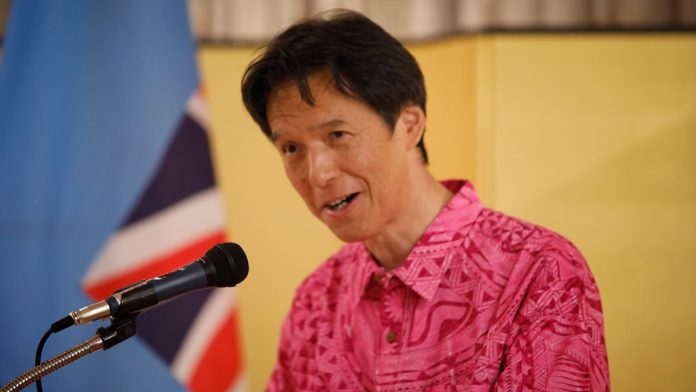Japanese ambassador to Fiji Rokuichiro Michii says he understands the concerns raised by the Pacific community after the release of treated nuclear wastewater from the battered Fukushima Daiichi Nuclear Power Station.
The Fiji Times newspaper asked Michii whether the issue of Fukushima had impacted the relations Japan shared with Pacific Island countries.
He replied it had not.
“We are sorry that this needs to happen,” he said.
“I understand that nobody would be happy to hear about it, so we fully understand but given the current circumstances, this is the best, feasible way so we have made our decision.”
The discharge of the treated wastewater, which occurs from the site in Fukushima, began in August last year.
Michii said his government worked to ensure proper checks and balances, as well as the conduct of processes by scientific standards.
He said transparency was a major part of operations, and they update all information related to the discharge online.
The International Atomic Energy Agency (IAEA) also maintains a presence at the Fukushima site to supervise the discharge process.
“When I meet your PM or ministers in the country that I am responsible for, like Nauru and Tuvalu, I always explain that this is how we are going to conduct this. I have visited the Fukushima site because I am explaining about these things.
“If I haven’t visited, how can people trust what I say?”
Michii said the Tokyo Electric Power Company (TEPCO) also organised scheduled visits to the site, and they are putting resources towards the eventual decommissioning of the plant.
The nuclear water that has caused controversy is the final product of a process which involves cooling down the nuclear reactors hit by the tsunami in 2011.
Since this became unusable, Michii said they would have to dismantle it.
These need to be cooled down constantly with water, and coming in contact with the reactor core contaminates the water with nuclear material.
The Advanced Liquid Processing System (ALPS) removes most of the radionuclides found in the water. However, it is unable to remove tritium.
Michii said tritium was naturally occurring in the ocean and authorities in Fukushima had diluted the water to levels acceptable by international requirements.
“Like I said, this is not a happy topic, but we will keep you informed. That’s how we must do it because it’s our responsibility. You didn’t cause this accident, so that is our responsibility, said Michii.














